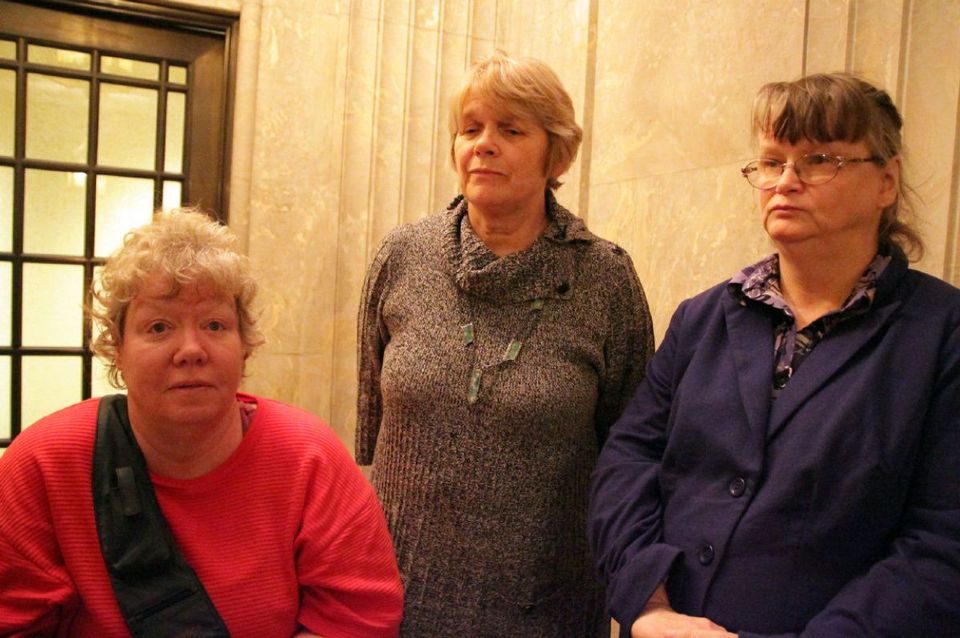To fix the “very awkward” rift between the plaintiffs and their own lawyers in the Huronia institution lawsuit, a Superior Court judge came up with a creative solution Wednesday — hire another lawyer.
The ruling from Justice Paul Perell pertained to a prolonged disagreement over how nearly $5 million of settlement money — part of the $35-million Huronia agreement reached in the fall of 2013 — will be distributed in the coming months. Perell ruled that another lawyer be hired to help the plaintiffs negotiate the rollout of this money with the Crown and the counsel that spearheaded the historic class action lawsuit.
“I think it provides them with a voice, and it deals with your conflict problem, and it allows this process to move forward,” Perell said during a hearing in an Osgoode Hall courtroom Wednesday morning.
The Huronia Regional Centre in Orillia was an institution for people with developmental disabilities, part of a network of such facilities that operated for more than a century. People who lived at Huronia and other institutions have long insisted that abuse and neglect were rampant.
Three years ago, days before a class action lawsuit for hundreds of Huronia residents went to trial, the government reached a settlement with the survivors’ lawyers: Kirk Baert and Jody Brown from the Koskie Minsky law firm. The agreement was worth $35 million and individual claimants were to receive up to $42,000 each for the abuses they suffered at Huronia.
After the individual payments were doled out in the Huronia case, the agreement stipulated that up to $5 million of the settlement money — officially called “Schedule D” funds — would be used to finance program to educate the public about Huronia and to fund organizations that help people with developmental disabilities.
Marilyn Dolmage and her husband Jim helped start the class action lawsuit with former Huronia residents Marie Slark and Patricia Seth. Seth and Slark were appointed as the plaintiffs to represent all survivors in the case, while Dolmage and her husband were named litigation guardians to help them with the legal process.
The group has had concerns about how the Koskie Minsky lawyers have handled the suit since the settlement was reached in 2013, Dolmage said Wednesday. Speaking on behalf of the plaintiffs, Dolmage claimed in court Wednesday that the Koskie Minsky lawyers weren’t listening to their concerns that the Schedule D funds would be channeled to programs and organizations that don’t directly benefit former residents of Huronia.
“My opinion was that the Schedule D money belonged to survivors,” Seth told the Star after Wednesday’s hearing. “It was important to us. Our power was taken away by our own lawyers.”
Baert, one of the class members’ lawyers, said in court that it was his duty to represent the entire class of survivors, and it was in the interest of the survivors as a whole for the judge to “break this impasse” and order the beginning of the process where various groups can apply for some of the Schedule D funding.
“We can’t let the money simply sit there and not be given out,” Baert said. “We’ve had to come to you to ask that you break this logjam.”
Justice Perell agreed that the process for distribution should start, but ordered that a new lawyer be hired — with payment coming out of the Schedule D funds — to represent the plaintiffs in the negotiations over which groups should get the money.
Dolmage and the plaintiffs said they were happy with the result. “We don’t just have a voice (now), we’ve got help,” Dolmage said outside the courtroom.
Once Koskie Minsky sends out notices to a list of interested groups, there will be a four-month window to solicit applications for the money, Dolmage said.
The law firm earned more than $8 million from the settlement fund for their work on the case.
The case precipitated a slew of class action settlements that Koskie Minsky handled for survivors of other institutions in Ontario. In April, the government agreed to a $35.9 million agreement for former residents of 12 more institutions that was modeled on the Huronia settlement.
By Alex Ballingall, The Star

